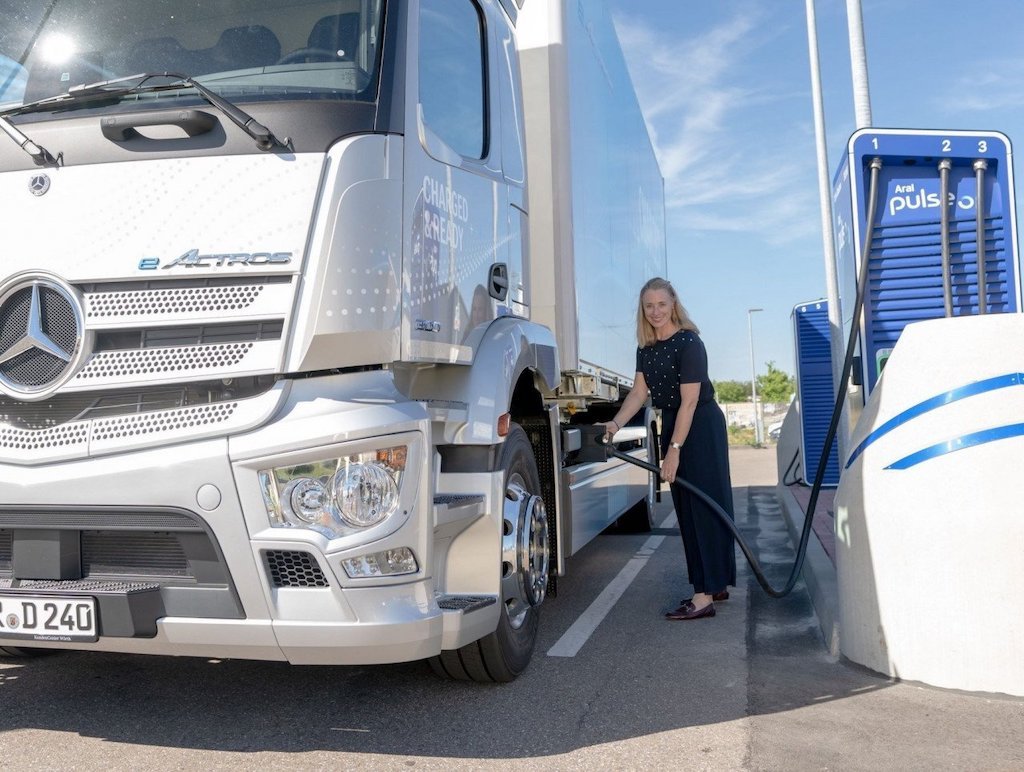bp pulse puts ultra-fast 300kW chargers along 600km European freight corridor
Six public charging stations with ultra-fast 300kW charge points aimed at electric trucks have been installed along a 600km length of Germany’s Rhine-Alpine route. The corridor is one of Europe’s largest road freight routes, linking important North Sea ports in Belgium and the Netherlands with the Mediterranean port of Genoa in Italy via a 1,300-km network of motorways.
The new chargers have been deployed in Aral retail locations in Germany between the Rhine-Neckar and Rhine-Ruhr metropolitan areas. Aral is bp’s German retail brand. Two more outlets on Aral retail sites are set to open in the next six months to complete the new charging corridor.
Each of the 300kW charging stations is capable of charging more than 20 e-trucks each day. Using the ultra-fast charge stations, an e-truck’s range can be increased by 200 km in around 45 minutes.
“This is a significant moment for e-trucks in Europe and an important step in our journey towards helping to decarbonise truck transportation. By electrifying this stretch of the Rhine-Alpine corridor with ultra-fast charging, bp is enabling charging beyond “back to base” whilst rapidly learning customer insights which will directly inform our longer-term European network and proposition.” Nigel Head, EV Truck Director, Europe, bp pulse.
“By beginning the roll-out of a dedicated charging network for freight operators and fleets, with a focus on major logistics corridors, bp is supporting the electrification of medium and heavy-duty vehicles, decarbonising the movement of goods, as well as people.
“Ultra-fast charging in the right locations, combined with depot and destination charging, is critical infrastructure to accelerate the electrification transition, unlocking the economic and environmental benefits of low-carbon commercial road freight and transport.”
Alex Junge, Aral Board Member for E-Mobility, said, “The discussion about e-mobility has been focused on the passenger car sector, but medium and heavy goods vehicles are also at a decisive turning point. Our strategy is designed to meet this demand with the right infrastructure and our first public electric truck charging corridor in Germany is an important milestone on this path.”
Johannes Pallasch, from Germany’s National Centre for Charging Infrastructure, part of the Federal Ministry for Digital and Transport said, “To reduce CO2 emissions in road freight transport significantly, e-trucks will play a central role in regional and long-distance transport. As with passenger cars, the switch to electromobility can only succeed with a reliable and needs-based charging infrastructure. With today’s opening, Aral is taking an important step in this direction.”
It is anticipated that by 2030, roughly 270,000 battery electric medium and heavy-duty trucks will be in use in Europe, necessitating the installation of up to 140,000 public and destination electric charging outlets.

